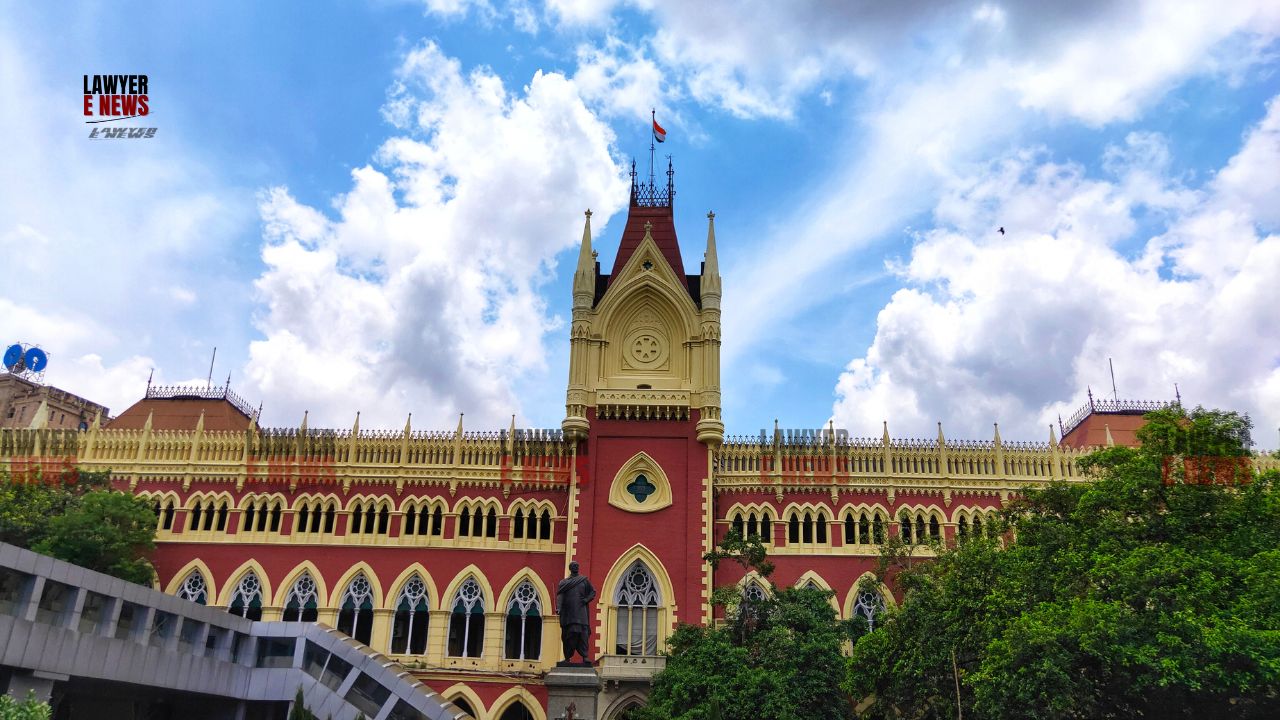-
by Admin
15 February 2026 2:16 AM



The Calcutta High Court, in a significant ruling, dismissed a petition seeking to quash a criminal proceeding involving allegations of rape and cheating under Sections 376 and 417 of the Indian Penal Code (IPC). The petitioner, Kousik Ghosh, was accused of sexual intercourse on the pretext of marriage, which the complainant alleged was made under false promises. Justice Ajoy Kumar Mukherjee ruled that determining whether the accused intended to marry or misled the victim with false promises can only be ascertained through a full trial, rejecting the petitioner's plea for quashing the proceedings at this stage.
The case revolves around a complaint filed by the victim, who had been in a relationship with the petitioner, Kousik Ghosh, for four years. She alleged that during this period, Ghosh repeatedly promised to marry her, leading to sexual intercourse on multiple occasions. As a result of their relationship, the victim became pregnant twice, with Ghosh allegedly coercing her into abortions. Eventually, he reneged on his promise to marry her, prompting the victim to file an FIR under Sections 417 (cheating) and 376 (rape) of the IPC, along with Section 313 (causing miscarriage without consent). The petitioner challenged the FIR, arguing that the sexual relationship was consensual, and thus did not constitute rape or cheating.
The court scrutinized whether the sexual intercourse occurred under a "false promise of marriage," which could vitiate consent under Section 375 of the IPC. Justice Mukherjee relied on multiple precedents, including Dilip Singh v. State of Bihar and Kaini Rajan v. State of Kerala, which established that a false promise to marry that induces consent to sexual intercourse could amount to rape. “A misrepresentation as regards the intention of the person seeking consent could give rise to a misconception of fact," the court noted, reinforcing that the petitioner’s intent at the time of making the promise was crucial.
The petitioner contended that the relationship was consensual, as both parties were adults and had cohabited willingly. However, the court emphasized that the core issue—whether the promise to marry was genuine or a ruse—required examination at trial. Justice Mukherjee remarked, "The consent obtained by making a false promise to marry is not a valid consent. The petitioner’s intention can only be determined during the trial based on the evidence and surrounding circumstances."
The court extensively cited the Supreme Court’s interpretation of consent under Section 90 IPC, which clarifies that consent given under a misconception of fact is not legally valid. In cases of sexual relations under a false promise of marriage, the accused must have known or had reason to believe that the promise was deceptive. The court noted that such cases necessitate a trial to discern whether the promise of marriage was a genuine commitment or a tool for exploitation.
Justice Mukherjee observed, "The petitioner had made specific allegations that the accused engaged in sexual intercourse with her by falsely promising marriage. The validity of this promise and whether it was a mere hoax cannot be determined without a trial. Quashing the proceedings at this stage would be premature."
By rejecting the petition to quash the criminal proceedings, the Calcutta High Court reinforced the importance of allowing a full trial to ascertain the accused's intent in cases involving promises of marriage. This decision affirms that claims of a false promise of marriage, particularly when they involve sexual relations, must be carefully evaluated through judicial scrutiny rather than being dismissed prematurely. The case is now set to proceed to trial, where the evidence will be examined to determine whether the petitioner’s conduct constitutes rape and cheating.
Date of Decision: 03 September 2024
Kousik Ghosh v. The State of West Bengal
